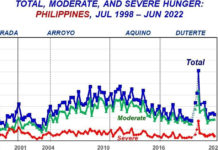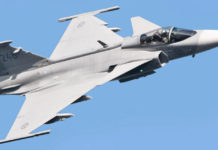
A senior Pentagon official confirmed on Thursday that Chinese anti-ship cruise missiles have deployed and positioned on land it claims in disputed areas of the South China Sea. Positively the first public confirmation of China’s activities by the United States government.
At the Congressional hearing, attended by the House Committee on Armed Services, the subcommittee on Seapower and Projection Forces, and top Pentagon officials.

Abraham Denmark, the deputy assistant secretary of defense for East Asia said, “China has deployed radar systems, anti-ship cruise missiles, surface-to-air missiles, and has rotated fighter jets positioned through features it claims in the South China Sea.”
Denmark did not elaborate where in the disputed waters China has deployed anti-ship cruise missiles, but he criticized Beijing’s “unilateral changing of the strategic landscape of the South China Sea.”
He said, “Once finished and equipped these facilities will enormously enhance China’s abilities to implement its maritime and territorial claims, and project power further from China’s shores.”
As part of efforts to show the U.S. resolve to “fly, sail and operate wherever international law allows,” the U.S. aircraft carrier Ronald Reagan, based at the U.S. Navy’s Yokosuka base near Tokyo, is conducting routine operations in the South China Sea this summer, he said.

Talking at the same Congressional hearing, Colin Willett, deputy assistant secretary of state for multilateral affairs, also had comparative perspectives, saying, “Militarized reclaimed outposts will not keep us from transiting and operating in the South China Sea.”
“To the contrary, it is creating a greater demand in the region for a strong and sustained U.S. presence,” Willett said.
With regards to the case brought by the Philippines to the Permanent Court of Arbitration in The Hague, Denmark and Willett urged China to adhere to a ruling that a U.N.-backed tribunal will hand down on July 12 regarding the legitimacy of its claims to almost the whole South China Sea.
“There will be a significant international focus on China’s and Philippine’s response to the ruling,” Willett said.
“An adverse reaction by any party to the arbitral tribunal’s decision could become a source of increased tension,” Willett said.
Denmark said the ruling “will present an opportunity for those in the region to determine whether the Asia-Pacific’s future will be defined by adherence to international laws and norms that have helped keep the peace and enabled it to prosper, or whether the region’s future will be determined by raw calculations of power.”
Denmark and Willett declined to say when asked in the hearing, whether militarization of Scarborough Shoal by China would undermine U.S. national security interests or invoke the mutual defense treaty between the United States and the Philippines. Wherein
the Philippines claims the Chinese-controlled Scarborough shoal as its territory.
“Scarborough Reef is a disputed feature, and we don’t take a position on whose claim is more legitimate, But our treaty obligation to the Philippines is absolutely ironclad and that any move to occupy a currently unoccupied feature or further militarize unoccupied feature is very dangerous and destabilizing,” Willett added.
Some political analyst believes that the ruling to be unfavorable for China, Their stand is that it will not accept arbitration on the South China Sea issue. – Jason E.
Watch: U.S. Congressional hearing on South China Sea Maritime Disputes












